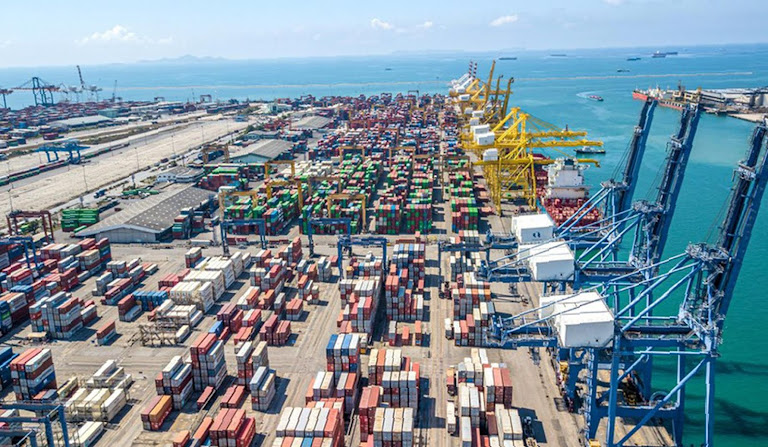Thailand Gambles to Survive as Global Trade War Looms
Beyond Tariffs: Thailand braces for a fragmented global economy prioritizing security over prosperity amid rising geopolitical tensions.

Thailand is sprinting, yes, but less to outpace Donald Trump than to survive the world he helped create. It’s not just about tariffs; it’s about the threat of tariffs, a shadow economy of anxieties where rational actors make deeply irrational choices, tying themselves in knots to anticipate the next geopolitical tremor. The surge in Thai exports, the frantic stockpiling of raw materials, the flight to gold — these aren’t signs of economic health, but symptoms of a systemically sick global order, one where uncertainty is baked into the balance sheets.
The numbers bear this out. As reported by Khaosod, Thailand’s export and import price indexes jumped in May. Computers and parts saw a particular surge, as did gold. But notice what’s missing: sustained, long-term investment driven by genuine confidence in future demand. Instead, we see short-term hedges, defensive plays designed to minimize exposure to a capricious global landscape.
Pichai warned that without proper assistance and strong negotiating tools, Thailand risks losing export markets and harming farmers and businesses. He emphasized that modern international policy requires technical understanding, careful attention, and timely decision-making.
But here’s the rub: this isn’t merely inefficient; it’s actively destructive. It’s diverting resources away from innovation, from infrastructure, from the kind of patient capital allocation that builds true prosperity. It’s turning the global economy into a giant arbitrage game, where the winners are those best positioned to game the system, not necessarily those with the best products or most efficient processes. This is rent-seeking on a global scale. The WTO, once hailed as a champion of free trade, has become, in the eyes of many, just another arena for these rent-seeking battles.
This isn’t unprecedented, though. The Smoot-Hawley Tariff Act of 1930, enacted during the Great Depression, offers a stark parallel. Intended to protect American industries, it triggered a cascade of retaliatory tariffs, choking off international trade and deepening the economic crisis. While the current situation isn’t identical, the underlying logic — that protectionism offers a viable path to prosperity — remains dangerously seductive, particularly in times of economic anxiety. And like Smoot-Hawley, today’s protectionist wave, however rhetorically packaged, invariably benefits politically favored domestic industries at the expense of consumers and broader economic efficiency.
Zooming out, Thailand’s scramble is just a pixel in a larger, more unsettling picture. The pandemic exposed the fragility of hyper-extended global supply chains, accelerating a trend towards regionalization and “friend-shoring.” Geopolitical tensions, particularly between the US and China, further fuel this fragmentation, pushing nations to prioritize security over efficiency, resilience over optimization. We’re witnessing the unraveling of the “end of history” thesis, the idea that liberal democracy and free markets were the inevitable endpoint of human development.
The consequences are likely to be far-reaching. A world carved into competing trade blocs is not only less prosperous but also more prone to conflict. As countries prioritize national security and economic self-sufficiency, the incentive for international cooperation diminishes, making it harder to address shared challenges like climate change and pandemics. Thailand’s desperate scramble to navigate this new reality, by hiring consultants and increasing transparency measures, highlights a grim truth: we are entering an era where nations must expend vast resources just to mitigate the risks of a world increasingly defined by uncertainty and distrust. The global economy is evolving into a high-stakes game of geopolitical chess, and for many nations, survival, not progress, is the primary objective.









